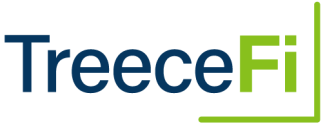
Ready to launch a career and start adulting?
Getting your first job after college or high school is both exciting and stressful, right? I totally get it! It's a massive change that comes with new challenges and responsibilities. It can be overwhelming to know where to begin when it comes to managing your personal finances.
But don't worry, I've been there! Here are some solid tips to help you make the most out of your paycheck:
Put Paycheck Deductions into Perspective
Don't panic if you receive your first paycheck and it's not what you expected. I remember feeling sure that my paycheck was incorrect because the amount in my bank account was much smaller than I thought. Your take-home pay tends to be reduced largely by taxes, and there are a few things you need to check to understand your actual pay.
First, take a look at federal and/or state taxes withholdings on your paycheck. Federal taxes rates are taken based on your income and tax bracket, while state taxes vary from state to state. Don't forget about pre-tax withholdings, such as Social Security and Medicare payments, which are deducted from each paycheck received. Both you and your employer will pay 6.2% of your paycheck for Social Security and 1.45% for Medicare.
Just when you thought you’ve paid all your taxes, after-tax deductions are taken such as contributions to a Roth 401(k), healthcare benefits, and more. To get an idea of the deductions you can expect from your paycheck, try using a tax withholding estimator. It will help you understand what's coming out of your paycheck and why.
It's App-solutely Essential to Budget
Let's face it, budgeting isn't the most exciting thing to do, but it's crucial to help you manage your money as you enter the working world with its varying responsibilities and money needs. In college, you probably had a relatively simple budget with basic bills and utilities to pay, student loans, and so on. But now, you need to step up your budgeting game.
Managing your money is easier and less stressful with a budget. There are lots of budgeting tools and resources out there to help you—here are some of the best:
It's also essential to set financial goals and prioritize your spending. Figure out what expenses are essential and which ones are not. Be realistic, and don't forget to set aside money for unexpected expenses or emergencies. By doing so, you’ll go a long way in avoiding going into debt!
Break Up with Student Loan Debt
Let's be real, many students graduate from college with a boatload of debt. And as expenses increase, that debt can quickly snowball out of control. But now that you have a source of income, you have an opportunity to start repaying accumulated debt and prevent it from getting worse.
The key is to create a plan and use a portion of your paycheck to pay off your loans. By doing so, you can reduce the interest owed and ultimately pay off the loan faster. Another option is to apply for jobs that qualify for Public Service Loan Forgiveness, a federal program that forgives student loan debt for borrowers working government or non-profit jobs like teachers, nurses, and other public service workers.
Unfortunately, the recent court orders have blocked student debt relief programs, and the one-time debt relief provided by the U.S. Department of Education as part of the Biden-Harris Administration plan is no longer available. However, you can still take steps to reduce your student loan debt and manage it effectively. With discipline, patience, and a solid plan, you can say goodbye to debt and achieve financial freedom in your 20s.
Keep Your Credit Cards in Check
When I first opened my credit card, I wish someone had told me to pay the full statement balance one week in advance. By only paying the minimum payment, you accumulate interest on the statement balance left unpaid, and that can quickly add up over time.
There are different ways you can pay your credit card statements. Some people break their statement balances into separate payments, while others pay automatically using bill pay. Bill pay is an automatic bill payment service that allows you to pay your credit card statements without worrying about forgetting to do so. This is especially important if you just opened your card because missing payments can severely impact your credit score.
However, relying solely on bill pay can also have its downsides. You may not be consistently tracking your expenses, which can lead to overspending and difficulties in managing your finances.
The key is to find a balance between using bill pay and monitoring your spending. By paying your credit card balance in full and on time, you can keep your credit score high and avoid accumulating unnecessary interest charges.
Saving is Like Tipping Yourself
In an ideal world, you'll want to set aside around 20% of your earnings to build a strong financial foundation for your future. But we all live in the real world, so set aside the highest percentage that works for you. Here are some ways to make your money work harder for you, instead of just it sitting in a low-interest savings account.
401(k): Doubling Your Contributions
A 401(k) plan is a retirement account sponsored by your employer, allowing you to contribute a portion of your income with the added benefit of an employer match. This
means your employer will match a certain percentage of your contributions, essentially doubling the amount going into your account. Choose between traditional or Roth 401(k) plans, with pre-taxed or after-taxed options, respectively.
Roth IRA: Investing in Your Future
Roth IRAs are individual retirement accounts designed for those in the early stages of their career. These accounts allow for tax-free growth and withdrawals, but you can only withdraw penalty-free after you reach 59 ½ years of age. By contributing to a Roth IRA now, you'll be investing in a tax-free future.
Emergency Fund: Be Prepared for the Unexpected
Having an emergency fund with liquid assets is crucial for unexpected financial needs. You can choose from high-yield bank accounts, money market accounts, certificates of deposit (CDs), or IRA accounts to save your emergency fund. No matter which option you choose, make sure to have enough savings set aside to cover at least 6 months of expenses in case of emergency.
Although it's tempting to spend, your main goal is to spend less money than you make. Having a plan and keeping track of your money makes what you do spend guilt-free and way more rewarding
And that’s the power of maximizing your paycheck. Happy adulting!
Anusha Sikand
Client Support Assistant
Treece Financial Group, Inc.
_ _ _
Related Resources
Don’t Let Past Financial Decisions Dictate Your Future
Changing jobs? Don't leave money behind
Getting “Financially Naked” with Your Partner
Buy or Rent? The Best Answer May Not Be What You Think
_ _ _
Photo by Christina @ wocintechchat.com on Unsplash
